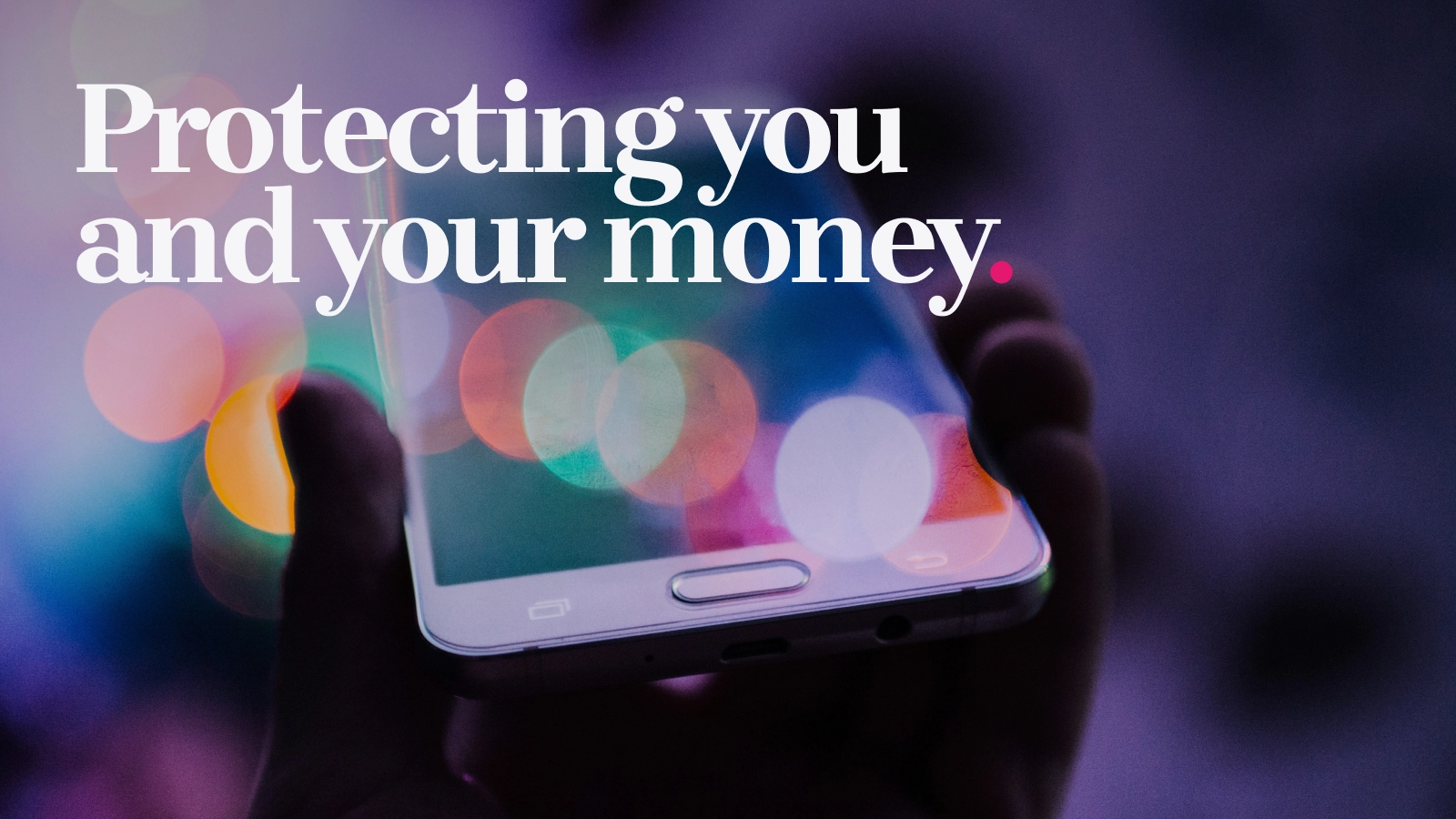Be scam-savvy this Black Friday and Cyber Monday.

21 November 2023 | by Alex Cuff
This blog post was accurate when we published it - visit kroo.com or your Kroo app for the most up to date information
Black Friday is a big deal. And not just for bargain hunters. Sales attract scammers, meaning you must take extra care when shopping online over the Black Friday and Cyber Monday weekend. People out there are eager to relieve you of your hard-earned cash, so think twice before snapping up that deal that sounds too good to be true.
78% of Authorised Push Payment cases originated online in 2022.
Overall fraud losses (both authorised and unauthorised) totalled £1.2 billion in 2022.
Social media platforms, online marketplaces and auction websites are prime hunting grounds for scammers targeting unsuspecting shoppers with purchase scams. These are the most common types of authorised fraud and occur when someone is tricked into sending money directly to someone else’s account via bank transfer (also known as a Faster Payment) to buy goods or services that don’t exist and are never received.
More scams to look out for.
Parcel delivery scams use deceptive text messages (SMS) linked to fraudulent websites that replicate legitimate retail or delivery sites. They’ll sometimes ask you to enter personal details and debit card information. They may then use this information to process unauthorised payments on your card. Or later, call you pretending to be your bank and ask for more information to help cancel the unusual transactions. Delivery scams are one of the most prevalent types of smishing text messages.
Employment scams tend to spike around this time of year as unsuspecting victims seek additional income to cover Christmas expenses. Job advertisements like ‘Financial Manager’ or ‘Payments Clerk’ claim you can make easy money with no qualifications or experience needed apart from having a bank account. Funds are transferred into the account, and a request is made to move the funds on in rapid succession. In doing this, the victim becomes a money mule and is now involved in money laundering – a criminal activity.
An advance-fee scam is when you’re convinced to pay an upfront fee to receive a prize/service, high-value goods or loans that never materialise.
You're likely to be inundated with spam over email and social media this Black Friday, but be careful when clicking through on deals that come from suspicious sources (stores you've never shopped at before, for example). Always check that the link you clicked sent you to the website you expected to visit.
Be wary of social media and email deals.
Scammers are getting more sophisticated by the day, and there’s no hard and fast way to guarantee you'll never get caught out by a dubious link. But you can minimise the risk by checking if the social media account or email address sending the link is genuine.
Visit the site in a separate browser window to see whether you can find the same offer advertised, and be sure the offer you're looking at is the one that's promoted.
Likewise, always use authorised sellers to buy goods, such as concert tickets. That bargain might sound seductive, but if it’s not from an authorised seller, it’s likely phoney and probably doesn't exist.
Protect your accounts.
You need to do this year-round, but it doesn’t hurt to be a little more conscious of it around Black Friday weekend. Use strong, unique passwords for all your accounts (a dedicated password manager or your browser's password management system can help here), and turn on two-factor authentication on every account that offers it (Microsoft, Apple, Google, Facebook, and Twitter ones all do, for a start).
Using that same password everywhere might be convenient, but it only takes one account sharing the same password to get exposed for everything to crumble. If you're using the latest versions of Chrome and Safari, you can use a strong password suggested by your browser.
Update your software.
Big names in tech like Microsoft, Apple, Google, and Mozilla are always making changes to their programs and operating systems and always asking you to update! Being badgered might be annoying, but ignore the update at your peril.
Today's browsers, apps, and operating systems spot scams as they happen, whether phishing emails (designed to lure you to a fake shopping or banking site) or unauthorised logins on your accounts. Ensure you're running the latest versions across the board, including the latest security patches.
If your laptop is too old to run the latest versions of Windows or macOS, you'll be safer shopping on your phone if it runs the most recent Android or iOS updates. On Android, you can check for updates via System and System Update in Settings; on iOS, it's Settings and then General and Software Update.
Stop and think.
Does something sound fishy? Does it not add up? Take a minute before you hit purchase.
Remember, your bank will never ask you to withdraw or transfer money for safekeeping or because your account is at risk.
Your bank will never ask you to download screen-sharing applications to your device.
Your bank will never ask you for one-time passcodes, security credentials, or to confirm debit/credit card information.
Verifying who you’re talking to using contact details which are known and trusted, whether that is your bank, your friends or your family, is vital.
Be aware. Be very aware.
In the first half of 2023, Authorised Push Payment fraud had over 116,000 confirmed cases and an overall total of £580 million was stolen by criminals. So, taking precautions is a good idea, particularly during busy periods like Black Friday and Cyber Monday. It can be all too easy to get carried away in the run-up to Christmas and get complacent.
Visit https://www.takefive-stopfraud.org.uk/ for further information.
If you think you’ve been a victim of fraud, contact your bank immediately and report it to Action Fraud online at actionfraud.police.uk.




